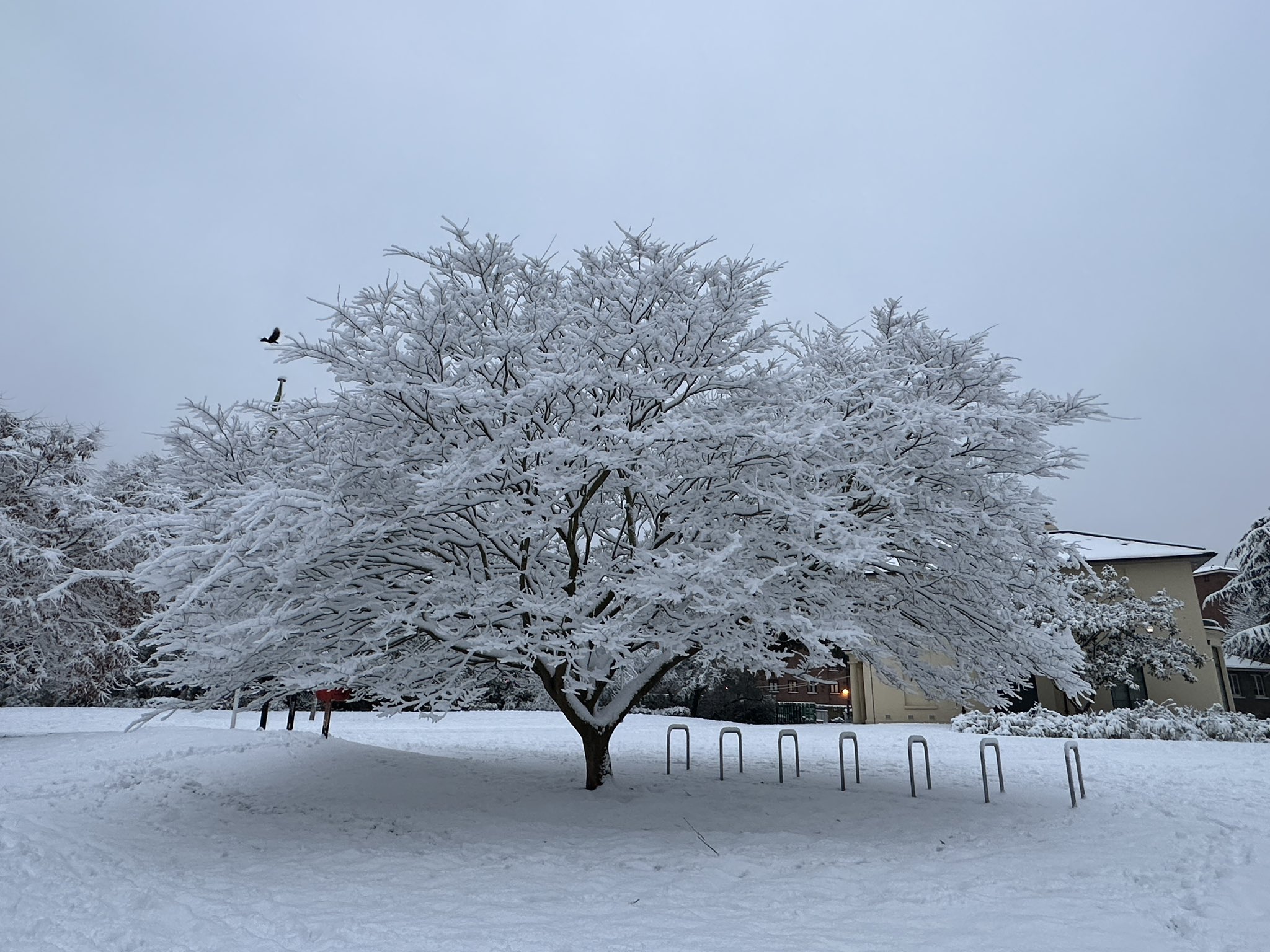Parts of the UK are covered in snow and ice, and the bitterly cold weather is expected to last for days.
There is travel disruption on the roads and rail this morning after snowfall and sub-zero temperatures in many areas of the UK overnight.
Snow, ice and freezing fog alerts are in place in northern Scotland, Northern Ireland, northeast England, the Midlands, London and much of the South.
Four children were fighting for their lives on Monday, after being pulled from an icy lake as an Arctic blast sent temperatures tumbling across the UK.
Emergency services said the children went into cardiac arrest when they were rescued and were taken to the hospital in critical condition.
The incident came as the UK was hit by heavy snow and freezing conditions, causing major travel disruption, on the eve of a national rail strike Tuesday that was already expected to bring the country to a grinding halt.
London Stansted airport warned of disruption.
“Our runway is temporarily closed whilst we undertake snow clearing,” it added, with many flights cancelled early Monday.
The airport is the main hub of budget airline Ryanair, which also cautioned about disruption to its flights at Gatwick, south of London.
“Due to ongoing severe snowy weather across the UK, runaways at both Stansted and Gatwick have been temporarily closed tonight (11 December), disrupting all flights scheduled to depart Stansted/Gatwick during this temporary closure period,” it said.
Both airports were open on Monday, but passengers were told to brace for delays.
Dozens of stranded passengers posted videos on social media showing snow-covered runways and planes stuck on the ground.
More than 50 flights were also cancelled on Sunday at Heathrow, the UK’s largest airport, due to freezing fog.
Some schools were also shut.
‘Do not travel’
On the trains, many operators warned services would be badly affected on Monday.
Southeastern tweeted that people should not travel, with some routes suspended until later and others disrupted.
Thameslink said materials needed for weekend engineering work had frozen, meaning it would take longer to complete and affect some services.
Services are severely disrupted this morning, with some lines suspended because of snow and ice on the third rail.
We’re advising passengers not to travel this morning.
We will update this thread when we have new information.
More information
https://t.co/BI5yN7FZBa pic.twitter.com/6MN7eJmO1O
— Southeastern (@Se_Railway) December 12, 2022
Greater Anglia said passengers should not travel until after 8am if possible, as did c2c, saying that safety checks needed to be carried out.
Great Northern said services were subject “to late notice delay or cancellation”.
National Rail warned disruption to the southeast network was likely to continue after severe delays on Sunday night.
“To allow Network Rail to check that the rails are clear of snow and ice, which can prevent trains from drawing power from the electric rail, the first trains in each direction on all routes will be cancelled,” it said.
The UK has been experiencing a cold snap for several days, with temperatures dropping to -10 Celsius degrees (14 Fahrenheit) in some areas, although the Met Office said the temperatures were “not unusual for this time of year”.

The service has issued yellow alerts for snow, fog and frost in several areas, including southeast and southwest England, and the north of Scotland.
Elsewhere, the UK Health Security Agency (UKHSA) sent out a level three cold weather alert covering England until Friday.
The agency is advising people to look out for friends and family who are vulnerable in the cold and to ensure they have access to warm food and drinks, adding that people should maintain indoor temperatures of at least 18C.
“If you have a pre-existing medical condition, you should heat your home to a temperature that is comfortable for you.
“In rooms you mostly use such as the living room or bedroom, try to heat them to at least 18C if you can. Keep your bedroom windows closed at night. Wearing several layers of clothing will keep you warmer than one thicker layer.”
Darren Clark, severe weather resilience manager at National Highways, said gritters would be out to keep motorways and major A-roads open.
He said: “National Highways is committed to treating every road which needs to be treated – whenever it is needed.”
SOURCE: INDEPENDENT PRESS AND NEWS AGENCIES
___________________________________________________________________________________________________________________________________
FOLLOW INDEPENDENT PRESS:
TWITTER (CLICK HERE)
https://twitter.com/IpIndependent
FACEBOOK (CLICK HERE)
https://web.facebook.com/ipindependent
Think your friends would be interested? Share this story!










